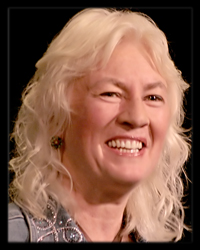Social Venture Network (SVN), the country’s leading network of socially responsible entrepreneurs, is currently accepting applications for their 2009 SVN Innovation Awards. The Innovation Awards program supports the “next generation” of socially responsible business and nonprofit leaders by providing them access to the people and resources to help develop and grow their enterprises. Investors’ Circle has a long history with this member organization of 500 CEO’s, investors, and nonprofit leaders of cutting-edge socially responsible businesses and nonprofits. Not only was IC sprung from a core group of SVN investors in 1992, our organizations have both spent the past 17 years nurturing the growth of socially responsible investing, sustainable economies, fair trade and organic/eco living.
“SVN is, for a third time, inviting the next generation of socially responsible entrepreneurs to apply for the SVN Innovation Awards,” said Deborah Nelson, Executive Director of Social Venture Network. “We were very impressed by our six winners from 2008; even in a challenging economy, they have expanded their impact in creating a more just and sustainable world. We look forward to welcoming this year’s winners into the SVN community.”
SVN is accepting Innovation Awards applications from May 1 through June 15 at: www.svn.org/awards. Finalists will be selected and announced in August. After a second round of judging that will include phone interviews, the judges will select the 2009 Innovation Award winners in late September. Winners will be honored during an Awards ceremony during the SVN 2009 Fall Conference at the Estancia La Jolla from October 22-25 just outside San Diego, CA.
The 2009 winners will each receive a one-year membership to SVN as well as registration, travel expenses, and special recognition at the invitation-only SVN Fall 2009 Conference. The winners will be honored during a special ceremony on Friday, October 23rd, where they will have a chance to share their work with an audience of successful socially responsible business leaders, investors and nonprofit leaders. The Innovation Award winners will also be promoted for a full year on the SVN Website and in media outlets and will receive free registration to the Spring 2010 SVN Member Gathering.
“Being honored as an SVN Innovation Awards winner made a huge difference to REC. I’ve made a lot of great connections, received mentoring from several SVN members, and have partnered with a number of the network’s leaders who are helping me think strategically about how to achieve greater social impact,” commented 2007 SVN Innovation Awards recipient, Morgan Simon, the co-founder and Executive Director of Responsible Endowments Coalition (REC).
2008 Innovation Award winners included: Timothy O’Shea (CleanFish), Kirsten Tobey and Kristin Richmond (Revolution Foods), Michelle Kaufmann (Michelle Kaufmann Designs), Jonathan Lewis (MicroCredit Enterprises), Jeannine Jacokes (Partners for the Common Good), and Willy Foote (Root Capital).
 2009 Annual Innovation Awards Eligibility: To be eligible for the 2009 Innovation Awards, applicants must currently hold positions as C-level executives (CEOs, executive directors, founders, etc.) of businesses or nonprofit organizations implementing an idea that is having a positive social or environmental impact on the business sector. Eligible applicants will be leading an organization that is less than five years old.
The application process includes providing thoughtful answers to several essay questions and presenting relevant metrics describing the enterprise or organization. For a 2009 SVN Innovation Awards application, complete program information, and additional information about SVN, please visit: http://www.svn.org/awards.
2009 Annual Innovation Awards Eligibility: To be eligible for the 2009 Innovation Awards, applicants must currently hold positions as C-level executives (CEOs, executive directors, founders, etc.) of businesses or nonprofit organizations implementing an idea that is having a positive social or environmental impact on the business sector. Eligible applicants will be leading an organization that is less than five years old.
The application process includes providing thoughtful answers to several essay questions and presenting relevant metrics describing the enterprise or organization. For a 2009 SVN Innovation Awards application, complete program information, and additional information about SVN, please visit: http://www.svn.org/awards.
Filed under: Uncategorized | Leave a comment »












 A recent
A recent